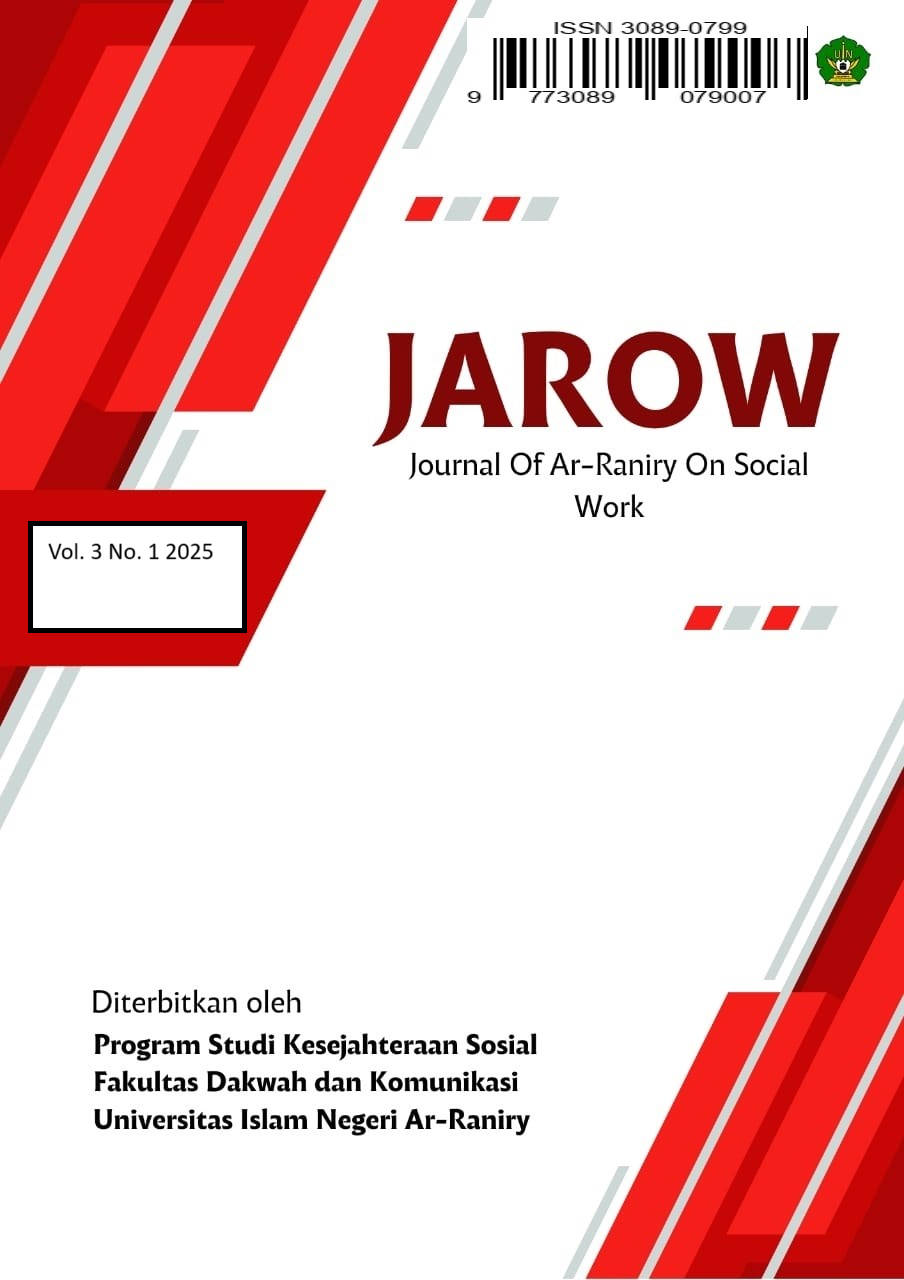Ambiguitas Penerapan Prinsip Ekonomi Islam dalam Pengentasan Kemiskinan di Aceh
DOI:
https://doi.org/10.22373/jarow.v3i1.7858Keywords:
Islamic economics, Aceh, poverty, zakat, policy ambiguityAbstract
-
This article explores the ambiguity between the ideal principles of Islamic economics and the socio-economic realities in Aceh. Although Aceh is recognized as the only province in Indonesia that officially implements Islamic Sharia, the region's socio-economic conditions reveal relatively high poverty rates and evident economic inequality. This study aims to identify the causes behind the discrepancy between Islamic economic principles—such as justice, the prohibition of usury (riba), and wealth distribution—and the economic activities and public policies applied in Aceh. The research adopts a qualitative approach using descriptive-analytical methods, based on secondary data and academic literature. The findings indicate that the implementation of Islamic economics in Aceh remains largely symbolic and has yet to address deeper structural aspects. Several factors contribute to this ambiguity, including limited understanding of Islamic economic literacy, lack of coordination between religious scholars (ulama) and the government, and ineffective zakat management. This article suggests the need for institutional reform, improved economic literacy, and relevant Islamic economic innovations as steps toward a more authentic and empowering implementation of Islamic economics in society
References
Antonio, M. S. (2001). Bank Syariah: Dari Teori ke Praktik. Jakarta: Gema Insani
Ascarya. (2008). Akad dan Produk Bank Syariah. Jakarta: Rajawali Pers.
Baitul Mal Aceh. (2022). Laporan Tahunan Pengelolaan Zakat dan Infak. Banda Aceh: Pemerintah Aceh.
BPS. (2023). Profil Kemiskinan di Indonesia. Jakarta: Badan Pusat Statistik.
Chapra, M. U. (2000). The Future of Economics: An Islamic Perspective. Leicester: Islamic Foundation.
Dusuki, A. W. (2008). Understanding the Objectives of Islamic Banking: A Survey of Stakeholders' Perspectives. International Journal of Islamic and Middle Eastern Finance and Management, 1(2), 132–148.
https://doi.org/10.1108/17538390810880982
Haneef, M. A. (1995). Contemporary Islamic Economic Thought: A Selected Comparative Analysis. Selangor: Ikraq.
Kahf, M. (1995). Islamic Economics: What Went Wrong? Jeddah: Islamic Research and Training Institute (IRTI).
Salim, A. (2011). Challenging the Secular State: The Islamization of Law in Modern Indonesia. Honolulu: University of Hawai’i Press.
United Nations Development Programme (UNDP) Oxford Poverty and Human Development Initiative (OPHI). (2024). Global Multidimensional Poverty Index (MPI) 2024: Poverty amid conflict. UNDP. https://hdr.undp.org/content/2024-global-multidimensional-poverty-index-mpi
Zuhaili, W. (2013). Fiqh Islam wa Adillatuhu (Jilid 4). Damsyik: Dar al-Fikr.
Downloads
Published
Versions
- 2025-06-12 (2)
- 2025-04-30 (1)


